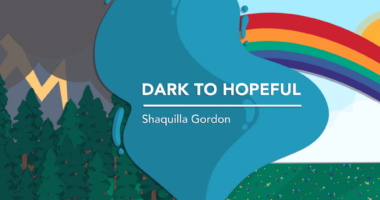With an invisible disability, society’s expectations are frustrating
People say the strangest things, but that's an opportunity to educate them

A saying I wish would become more common is “not all disabilities are visible.” That’s the case for me and my invisible disease. Although I understand how people can’t always relate to or remember my limits unless they’ve lived them or see them, my insight into others doesn’t make it easy for me.
My rare disease, paroxysmal nocturnal hemoglobinuria (PNH), has left me in an unchosen limbo when under the gaze of the naked eye. Because I look “normal,” society has unspoken expectations of me, as if I were a healthy person. At times, I have trouble living up to those expectations because they’re beyond my capabilities.
Common challenges I face
For starters, working and maintaining a career have been difficult for me. The commitment to a full-time, 40-hour work week, as expected of a healthy person, is a huge stress factor for me when I have unpredictable fatigue levels. I’m a people-pleaser, so I feel a heavy burden each time I need time off work for my health. That also makes me feel guilty for requesting time off for vacations or other happy things because I’ve already taken so much time off because of illness.
Aside from work, simple things, like where I park, also come with expectations. I have a handicapped parking pass to help when I have bad fatigue days, but I’m always on edge when I use it. Before hanging the pass on my rearview mirror, I usually rehearse what I’ll say if someone questions why I’m using it. Luckily, I haven’t had to use that preplanned script yet, but I’m just waiting for it to happen.
Long-distance walking is another thing I can’t do as well as a fully healthy person. My husband and I vacationed at Disney World and Universal Studios shortly after my diagnosis, and I used a wheelchair. I knew I could walk in the parks for one or two days, but three or more would’ve been impossible. I received some glaring looks.
We went during the Halloween season when people dress in costumes, and I chose one that incorporated the wheelchair. Someone asked me if I got the wheelchair just to go with my costume. No, I did not.
All of these expectations and more weighed me down at the beginning of my PNH journey. I felt massive guilt at the thought of disappointing other people, but in the process, I was jeopardizing my health by not listening to my body. I’m starting to learn to adjust to these expectations with achievable goals. For example, I’m now working part time instead of full time.
In this rare disease limbo of healthy versus unhealthy, I wonder what degree of visibility a disability must have for people to show empathy.
The conclusion I’ve reached is that if we have to explain ourselves because others can’t see our disabilities, we can use it as an opportunity to educate them. The discussion doesn’t have to be confrontational; simply explaining to others and creating awareness of our disabilities can work wonders for our community.
Note: PNH News is strictly a news and information website about the disease. It does not provide medical advice, diagnosis, or treatment. This content is not intended to be a substitute for professional medical advice, diagnosis, or treatment. Always seek the advice of your physician or other qualified health provider with any questions you may have regarding a medical condition. Never disregard professional medical advice or delay in seeking it because of something you have read on this website. The opinions expressed in this column are not those of PNH News or its parent company, Bionews, and are intended to spark discussion about issues pertaining to paroxysmal nocturnal hemoglobinuria.








